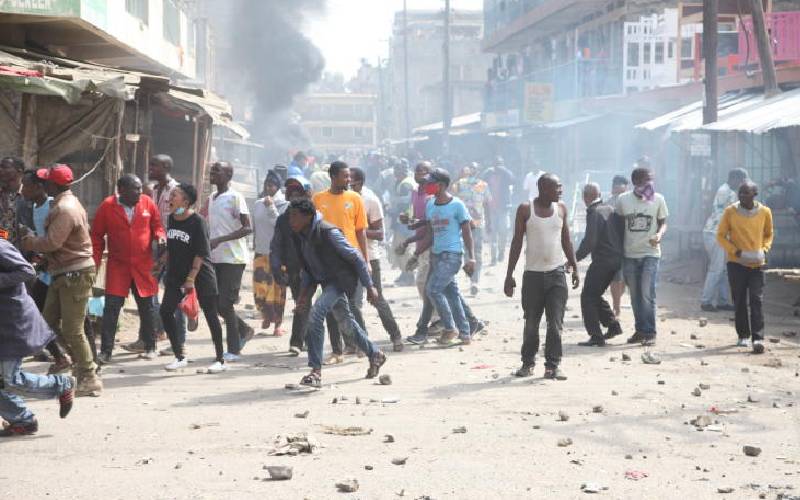×
The Standard e-Paper
Kenya’s Boldest Voice

Kayole residents protest after a middle-aged man was allegedly shot dead by police. [Wilberforce Okwiri,Standard]
Muslim communities and leadership in Coast and North Eastern region have repeatedly raised concerns about mysterious abductions and executions as an additional tragedy to terrorism; one that dangerously breeds resentment, fear and mistrust that can hinder the collective task of tackling the former and other security menaces.